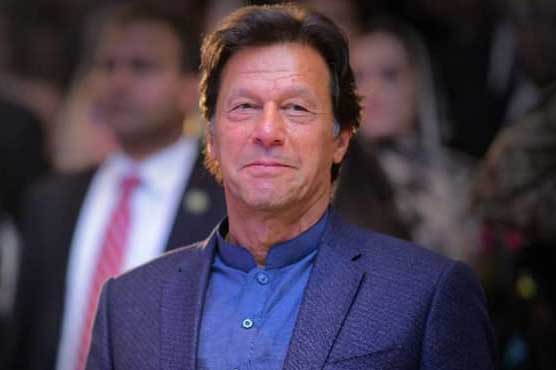PM Khan among Times 100 most influential leaders

He generates the broadest hope among young and old that he can turn Pakistan around
(Web Desk) – Prime Minister Imran Khan has been named among the 100 most influential people of 2019 by Time magazine.
.jpg)
Time magazine list of 100 most influential people in 2019 published on Wednesday was divided in five categories of pioneers, artists, leaders, icons and titans.
See all the 2019 #TIME100 honorees in under a minute — Presented by @Cadillac #KeepRising https://t.co/Bn1xdpAkOR pic.twitter.com/mGODPFEG7u
— TIME (@TIME) April 17, 2019
PM Khan the legend cricketer, who won the cricket world cup for Pakistan in 1992 known for his idealism and philanthropic work, struggled to gain political roots in the country for 22 years by working on ground through his political party ‘Pakistan Tehreek Insaaf’ was placed in the category of most influential leaders of 2019.
PM Imran spearheading the campaign against corruption and injustice, raised awareness among the masses and gained power in the general elections of 2018.
Other prominent figures in the leaders’ category are UAE Crown Prince Mohammed bin Zayed, Malaysian Prime Minister Dr. Mahathir Mohamad, Chinese President Xi Jin Ping, US President Donald Trump and New Zealand’s Prime Minister Jacinda Ardern among many others.
Eminent journalist Ahmed Rashid wrote
‘Pakistan is at a critical crossroads, and the man in charge is the closest it has to a rock star. Imran Khan captained the team that won the 1992 Cricket World Cup, built a world-class cancer hospital in Lahore, then a top-notch university for kids who could never have dreamed of attending one. Twenty years ago, he entered politics—a dirty business in Pakistan at the best of times.’
‘Now he is Prime Minister of an impoverished nation that cannot pay its bills and is dependent on handouts from rich neighbors like China and the Arab Gulf states. Critics say Khan is too close to the army and Islamic fundamentalists, and chooses advisers poorly. Driven by fierce ambition, he can be cold and calculating. But he still generates the broadest hope among young and old that he can turn Pakistan around, and help make South Asia an ocean of peace rather than a state of permanent conflict.
By

